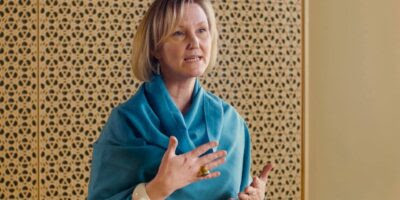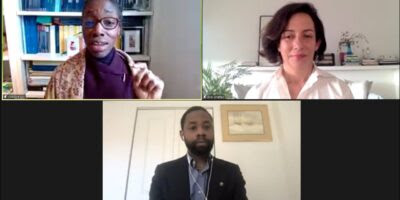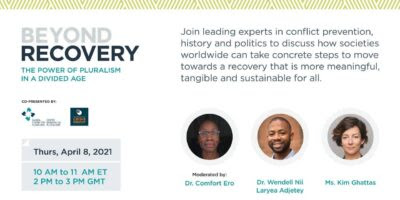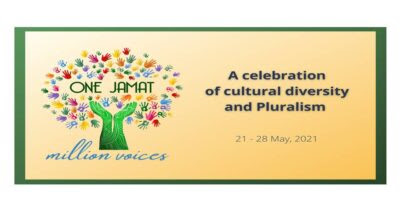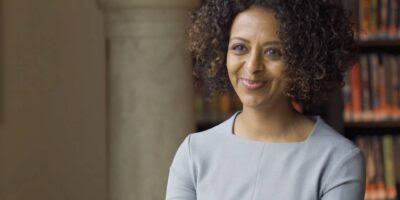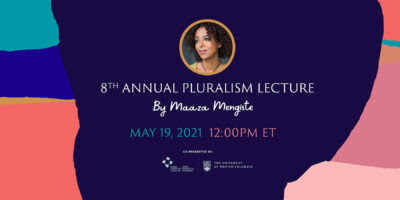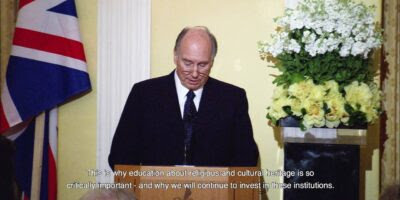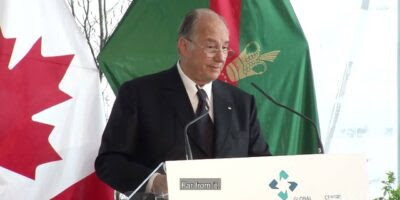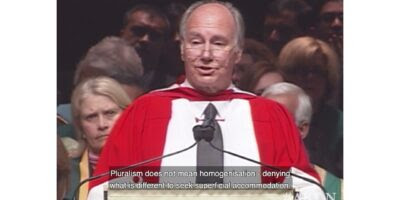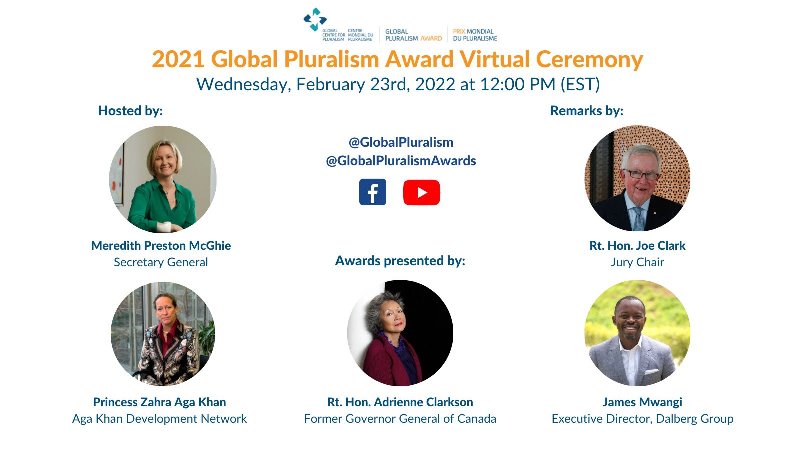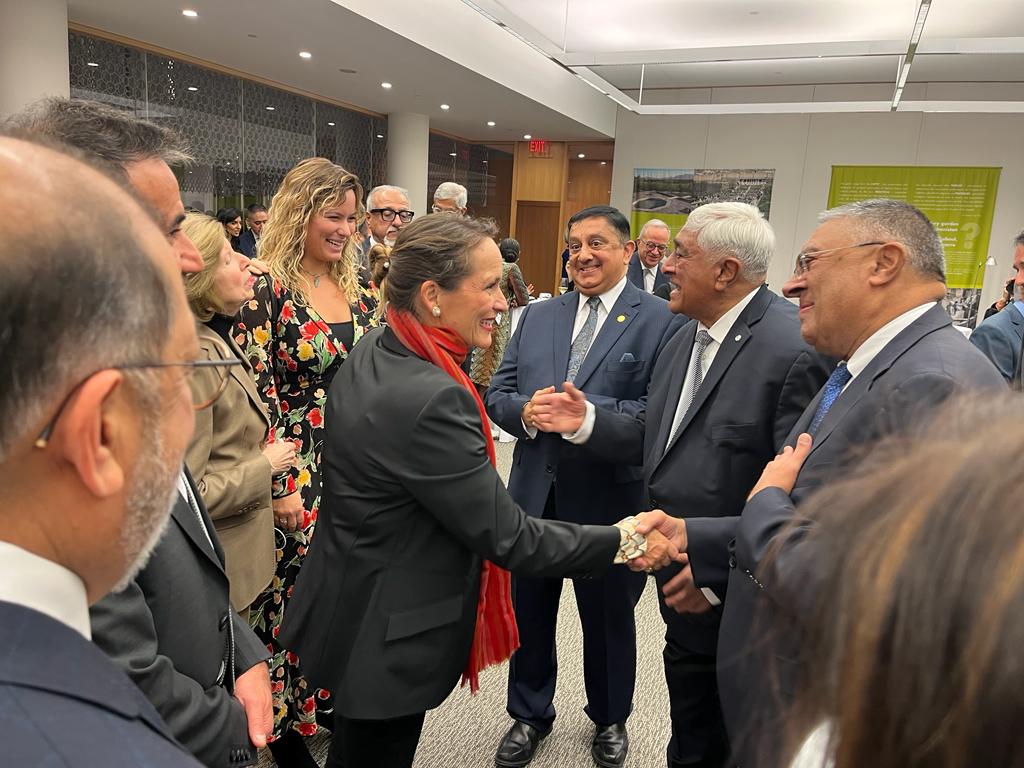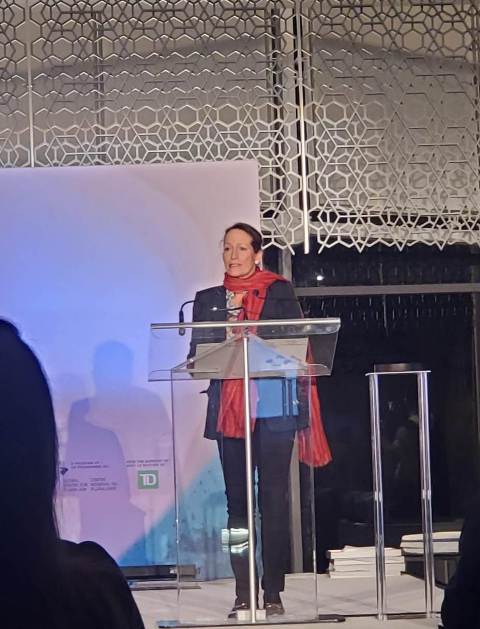Global Pluralism Awards spotlights champions of positive change
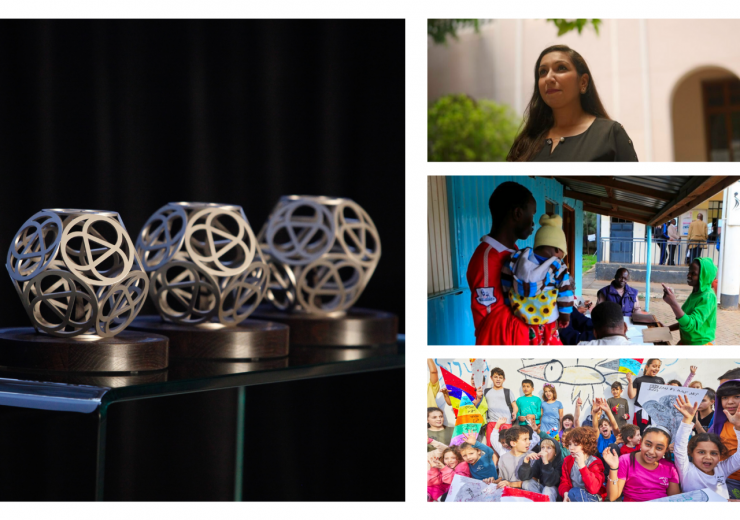
The Global Pluralism Award winners exemplify how to live peacefully and productively, while engaging with diversity.
The Global Pluralism Award ceremony was streamed to a worldwide audience on 23 February 2022, highlighting the organisations and individuals who demonstrate pluralism in action everyday.
The virtual ceremony recognised the three winners of the 2021 Award, selected from among 10 finalists and nearly 500 submissions,by the renowned international jury. The occasion marks the third conferral of the awards, after previous ceremonies in 2017 and 2019.
Hosted by Meredith Preston McGhie, Secretary General of the Global Centre for Pluralism (GCP), this was the first time it was not possible to gather for an in-person ceremony, due to Covid-19 precautions.
“Amidst this pandemic, which has amplified existing inequalities around the world, the Awardees have persevered, in hugely challenging contexts in the pursuit of more just, equitable, and peaceful societies,” said Secretary General McGhie.
“There are so many words to describe the Awardees – their courage, resilience and creativity inspire us,” she continued. “They remind us that positive change is possible, they remind us that divisions can be overcome.”
In a rapidly changing world, this year’s award winners exemplify how to live peacefully and productively, while engaging with diversity. Each of them was introduced and congratulated by a GCP Board Member respectively.
Sowing seeds of peace
“Education plays a fundamental role in fostering pluralism and building societies where diversity is valued.” said Princess Zahra, in her remarks to introduce the first winner, Hand in Hand: Center for Jewish-Arab Education in Israel.
“Through a distinctive approach to education and community-building, Hand in Hand is creating systemic change by cultivating relationships of trust and equality that empower citizens to live together in dignity and mutual understanding,” Princess Zahra continued.
Hand in Hand is a network of integrated, bilingual, and multicultural schools in which Hebrew and Arabic languages have equal status, as do both cultures and national narratives. Supported by a community of active citizens who value solidarity and dialogue, the organisation works to build a shared, inclusive society, and equips the next generation to live together in cooperation and respect.
“Pluralism has always been at the heart of our work,” said Dani Elazar, CEO of Hand in Hand, in his acceptance address. “Our schools and communities celebrate Palestinian and Jewish cultures, languages and identities, and build lasting relationships that lead to large-scale, sustainable change.”
Cultivating inclusivity and belonging
“Belonging is the goal of pluralism and belonging is at the heart of Namati Kenya’s work,” said The Right Honourable Adrienne Clarkson, introducing this year’s second winner.
“At a practical, institutional level Namati Kenya creates pathways for a pluralist society, securing citizenship rights for the marginalised and ensuring that citizens receive equal treatment under law,” continued Ms Clarkson.
Namati Kenya provides free legal aid to historically excluded communities who lack the national identity documents they need to access basic services. Since 2013, the organisation has supported 12,000 Kenyans to obtain these legal identity documents. Their network of community paralegals help to build legal awareness and empower communities to overcome discrimination.
“Being recognized as a winner of the Global Pluralism Award for this work is a true honour,” said Mustafa Mahmoud, Senior Programme Manager of Namati Kenya. “It is a testament to the idea that everyone – even those who have long been at the margins – can be an agent of change in creating a pluralistic society.”
Strengthening grassroots advocacy
“[Puja’s] contributions to the field of pluralism are far-reaching, relevant and impactful across multiple sectors and spheres of society,” said James Mwangi, introducing the third and final winner of this year’s award, Puja Kapai.
“Her work on minority rights in Hong Kong is also of immense value to the international community, providing roadmaps for global initiatives that celebrate diversity and protect human rights.”
Ms Kapai is an academic, lawyer, and social justice advocate who champions equal rights for Hong Kong’s ethnic minorities. Through an intersectional approach that combines research, advocacy, and grassroot mobilisation, she has garnered unprecedented attention to the status of ethnic minorities in the city.
“This Award renders visible the lived realities of all those who are routinely marginalised and experience systemic exclusion and discrimination,” said Ms Kapai, whose work has contributed to the abolishment of racially segregated schools for ethnic minority children in Hong Kong.
“May our efforts to advance pluralism going forward lay the foundation for a world that is free from hatred, division and exclusion and ring in an era of kindness, justice, and inclusion for all.”
Celebrating a prize-winning crop
Each of the winners will receive a commemorative sculpture, designed by the renowned German Muslim artist, the late Karl Schlamminger. They will also receive a grant of CAD $50,000 to support their work advancing pluralism in their own context.
In closing the ceremony, The Right Honourable Joe Clark, Jury Chair of the Global Pluralism Award, applauded the creativity, dedication, and courage of the awardees honoured at the event, who were drawn from hundreds of submissions from across 70 countries.
“Their stories are as unique as they are geographically diverse and, in distinctive ways, they demonstrate the power of working cooperatively to drive change,” he concluded.
“Today, these recipients join our honourees from 2017 and 2019, as part of a growing network of pluralism champions working all around the world.”
https://the.ismaili/global/news/institu ... ive-change
